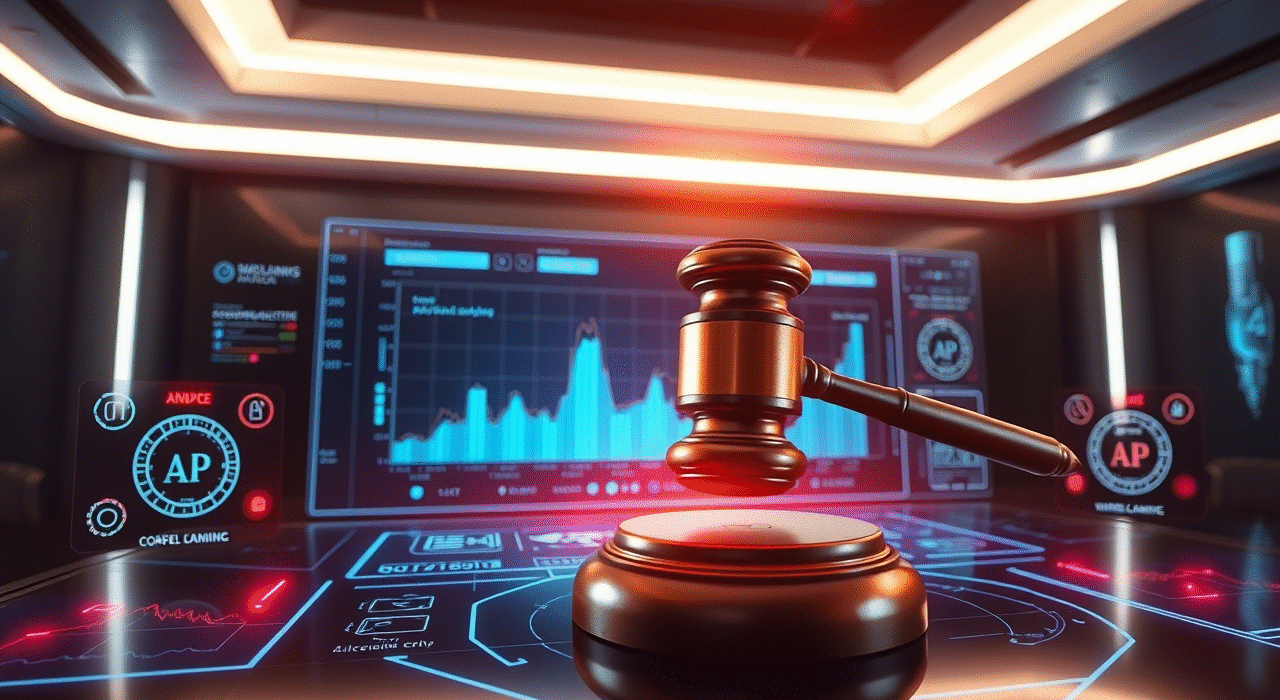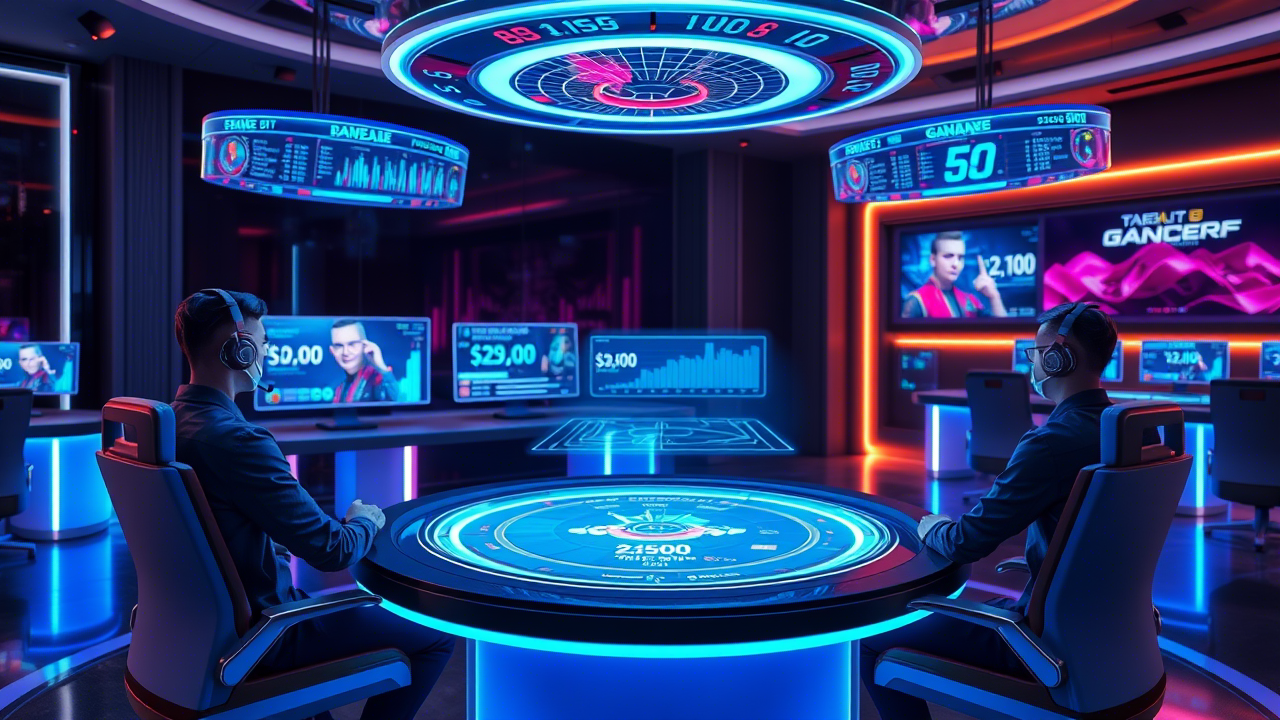🧠 The Next Regulator Might Be a Machine
Imagine this: You apply for a gambling license, and it’s granted in hours—not months. Your compliance reports are auto-submitted weekly, red flags flagged instantly, and suspicious affiliate behavior flagged before regulators even blink.
This isn’t sci-fi. It’s AI.
And it’s about to disrupt the entire licensing and regulatory framework of the global gambling industry.
In an era where gambling is digital, global, and lightning-fast, traditional regulatory models simply can’t keep up. Enter artificial intelligence—not just a tool for operators, but soon, the backbone of the regulators themselves.
📄 Licensing Today: A Cumbersome, Human-Centric Machine
Obtaining a license from Malta, Curaçao, the UKGC, or any reputable regulator is slow, expensive, and filled with manual paperwork.
Key pain points:
- Repetitive data input
- Human-led document review
- Weeks (sometimes months) of background checks
- Static frameworks ill-equipped for fast-evolving operator models
- Lack of interoperability across jurisdictions
Result? Many start-ups delay licensing—or skip it altogether—especially in emerging markets. Regulators, meanwhile, are buried under manual audits and after-the-fact investigations.
🤖 Where AI Steps In: The Three Big Pillars
AI has the power to revolutionize the licensing and regulation of gambling across three major pillars:
1. License Application & Due Diligence Automation
AI-driven tools can automate:
- Background checks through identity-matching engines
- AML risk scoring based on transaction data or applicant history
- Ultimate Beneficial Ownership (UBO) mapping through natural language processing (NLP) across corporate databases
- Faster document analysis using computer vision and OCR (Optical Character Recognition)
📍 Use Case:
In Estonia and Lithuania, AI is already used to scan applicant company structures for shell companies and PEP (Politically Exposed Person) links within minutes.
2. Real-Time Compliance Monitoring
Traditional audits happen quarterly or annually. AI allows always-on surveillance of operator behavior.
Examples include:
- Player protection algorithms detecting addictive patterns
- Marketing compliance tools that flag misleading or non-compliant bonus language in real-time
- Affiliate tracking AI that maps rogue traffic sources instantly
- Game fairness engines analyzing RNG performance across thousands of sessions for anomalies
📍 Use Case:
The UKGC is reportedly testing ML-powered tools to proactively scan operator sites for violations instead of waiting for whistleblower reports.
3. Cross-Jurisdictional Intelligence Sharing
AI doesn’t get lost in bureaucracy. It can serve as a regulatory API layer between Malta, the Isle of Man, Ontario, and others.
- Smart registries that automatically validate blacklisted individuals or revoked licenses
- Shared compliance data lakes updated in real time
- Pattern recognition engines that flag license hopping or duplicate entities across regions
📍 Use Case:
In the EU, initiatives like the Digital Services Act are laying the groundwork for this kind of cross-border regtech cooperation—AI will make it work at scale.
🛑 The Risks: What Could Go Wrong?
Let’s not pretend AI is a regulatory silver bullet.
Here are some real concerns:
- Bias in ML models: If trained on flawed enforcement histories, AI could perpetuate discrimination.
- Black-box decisions: Operators might not understand why they were flagged or denied.
- Over-policing innovation: AI might stifle creative business models with false positives.
- Privacy concerns: Real-time data scraping and behavioral tracking could overstep ethical boundaries.
That’s why human oversight won’t disappear—it will evolve.
Think of regulators as pilots with AI autopilot assistance. The final decision stays human—but AI makes it faster, more transparent, and more scalable.
📈 The Future of Licensing: Predictive, Not Reactive
Here’s what the licensing process could look like by 2030, thanks to AI:
| Step | Today | AI-Powered Future |
| Company Vetting | Manual document check | Instant UBO mapping & automated risk score |
| Compliance Check | Annual audit | 24/7 behavioral anomaly detection |
| Responsible Gambling | Self-reporting & flags | Predictive player harm alerts before damage |
| Licensing Fees | Static by country | Dynamic, risk-based licensing models |
| Cross-Jurisdiction Sync | Manual communication | API-driven, AI-synced compliance cloud |
Operators might eventually receive dynamic licenses that adjust permissions based on real-time behavior, not static categories.
🧩 Who’s Building This?
Several regtech and iGaming-adjacent firms are already moving fast:
- Compliable – Automating licensing documents for US markets
- TruNarrative – AI-powered AML/KYC tools for gambling
- HooYu (now part of Mitek) – Identity verification with AI decisioning
- Acuris Risk Intelligence – PEP and sanctions monitoring for operators
- Mindway AI – Behavioral analytics to detect problem gambling
But perhaps the most game-changing innovation will come from regulators themselves, embracing open-source AI models and smart contracts.
🔮 Bold Prediction: AI-Native Regulators Will Emerge
Expect to see entirely AI-native regulatory frameworks soon—especially in high-tech jurisdictions or crypto-heavy markets.
- Licensing-as-a-Service platforms (LaaS) with plug-and-play APIs
- Tokenized regulatory compliance trails via blockchain
- AI judges issuing fines or restrictions based on evidence-led ML detection
- Dynamic license smart contracts triggered by live operator metrics
📍 Wildcard:
A crypto-native jurisdiction (e.g., Dubai, Bahamas, or El Salvador) could launch the first “fully autonomous gambling regulator.”
🧠 Final Word: Adapt or Be Audited
The global gambling industry is already under pressure from lawmakers, activists, and media watchdogs. Add generative AI, deep behavioral analytics, and smart regtech to the mix—and the pressure will only grow.
But here’s the opportunity:
AI doesn’t just help regulators—it helps good operators rise.
Those who adopt AI-first licensing strategies will:
- Get approved faster
- Avoid nasty audits
- Scale across markets seamlessly
- Build trust with both players and watchdogs
And those who don’t?
They’ll be chasing yesterday’s paperwork in tomorrow’s AI-powered regulatory battlefield.











